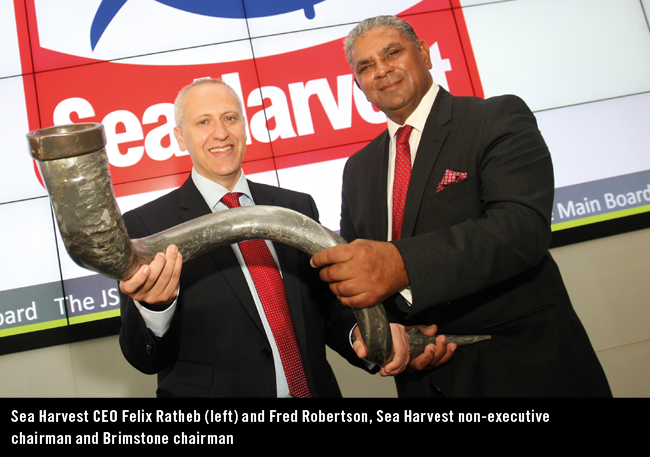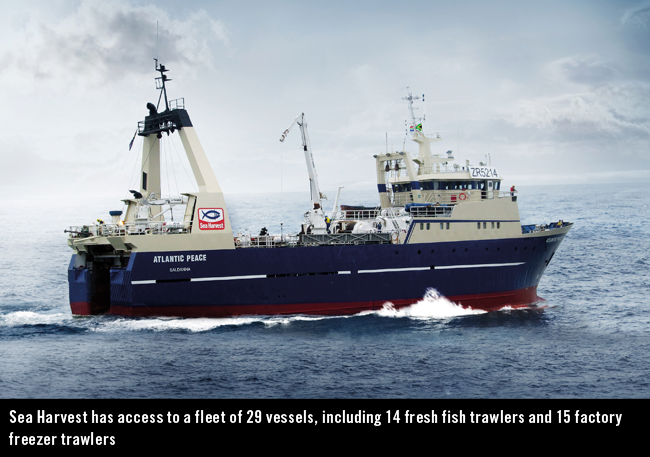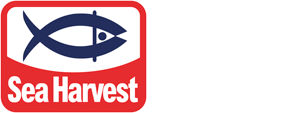With the listing on the JSE by Sea Harvest Group (SHG) in March this year, as well as the acquisition of a 55.9% majority stake in Mareterram, an Australian Stock Exchange-listed agribusiness in 2016, Sea Harvest is ideally positioned to grow its footprint to become a fully diversified global seafood company. Sea Harvest has a rich 53-year history and is a leading fast-moving consumer goods business in both the local and international seafood markets.
The latest developments in which one of SA’s largest black-owned seafood companies raised R1.33 billion through its listing on the JSE increases its potential to grow into one of the world’s top suppliers of wild-caught Cape hake and Australian Shark Bay prawns, especially in the more affluent markets of developed countries, according to Felix Ratheb, CEO of Sea Harvest.
Following its listing on the Main Board, SHG’s market capitalisation has rocketed to R3.14 billion.
‘We are very grateful to our majority shareholder, Brimstone, for their continued support. When I assumed my position as CEO, we adopted a vision of growing the company into a vertically integrated global player,’ says Ratheb.
Sea Harvest non-executive chairman and Brimstone chairman, Fred Robertson says: ‘Brimstone has retained a 54.9% shareholding in Sea Harvest post listing. It is committed to the South African government’s transformation and empowerment goals, and has invested R776 million in Sea Harvest since taking control of the business in 2009.’
The listing has ushered in a new era for the group. ‘It has allowed us to start taking the company in the desired direction, following a period of high debt levels that created challenging conditions in which to operate. Globally, consumers know that when they purchase Cape hake, the firm white-fleshed fish caught in unpolluted, nutrient-rich water off the west and south coasts of South Africa, in which the cold Benguela current flows, as well as Shark Bay prawns, crabs and scallops, caught along the west coast of Australia, they are buying superior quality from well-managed fisheries,’ says Ratheb.

Commenting on the rationale behind the listing, Ratheb says: ‘Through the capital raise, Sea Harvest will settle all debt and continue its growth trajectory, which is supported by a recent R780 million outlay in vessels and infrastructure to improve operational efficiencies, long-term sustainability and innovation, as well as the 55.9% majority stake acquired in Mareterram. In terms of our fleet, we own and have access to a total of 29 vessels, including 14 fresh fish vessels and 15 factory freezer vessels.’
Muhammad Brey, CIO of Sea Harvest, says the capital raised on the JSE provides the company with the necessary fire power to achieve its vision of becoming a diversified global seafood company. In addition, the newly raised capital enables Sea Harvest to look at diversifying into businesses that are, according to Brey, ‘naturally aligned to our expertise’.
Brey says the company is pursuing opportunities in the sustainable fishing resource space. ‘Both the South African Cape hake and the Australian Shark Bay prawn industries are certified as sustainable by the Marine Stewardship Council – MSC – the gold standard for sustainable practices within the global seafood industry. This guarantees that sustainability initiatives are always at the forefront of operations.’
The SA Cape hake fishery became the first hake resource in the world to be certified by the MSC in 2004 and was since recertified in both 2010 and 2015.
‘In South Africa, there is still some scope for diversification along with our lower risk propensity. We would be interested in businesses such as high-value aquaculture locally and opportunities in fishing, prawns and aquaculture in Australia,’ says Brey.
Since 1964, Saldanha Bay (on the Cape West Coast) has been the base of Sea Harvest’s operation. In SA, unemployment rates are typically higher in rural communities compared to the country’s urban cities. For this reason, Sea Harvest is proud of its reputation as the largest employer in the Saldanha Bay Municipality (SBM) – creating direct and indirect jobs for more than 4 000 people. The company generates almost 10% of total employment in the SBM, which continues to fuel economic growth in the region. The resulting total local income attributed to the presence of Sea Harvest is close to R400 million per annum – approximately 10% of the total household incomes in the SBM.

Looking ahead, Ratheb stresses the need for Sea Harvest’s strong transformation agenda. ‘Nothing stops us from continuing to identify smaller operations in the fishing sector that are not yet transformed or less transformed, as potential opportunities for merger and acquisition activity.
‘We are currently a Level 2 broad-based black economic empowerment employer and hope to reach a Level 1 rating in the near future. We pride ourselves on being an equal opportunity employer and over 80% black-owned.
‘As such, we are involved in various enterprise development and skills development projects that benefit the wider community in and around our Saldanha Bay and Mossel Bay factories.
‘We run a business that has very high barriers to entry and is capital intensive if you consider that simply to replace our fleet of vessels would cost at least R1 billion, while replacing the rest of the assets like our facilities, including factory and machinery, would be another R1 billion.’
Ratheb says he is highly satisfied with the latest round of Sea Harvest’s fishing rights allocation by SA’s Department of Agriculture, Forestry and Fisheries and the allocation enjoyed by Mareterram, which has fishing rights that run in perpetuity in Australia.
‘That pleases me greatly as I’d rather sacrifice a higher price for product than face uncertainty around fishing rights allocations. Certainty around rights allocations facilitates long-term planning and encourages investment in our business.’
The listing of Sea Harvest’s shares was far oversubscribed with demand for script exceeding R3 billion.
‘We now have a nice mix of shareholders owning 42% of the company, which we are certain will support our growth strategy. We tried to be fair by giving all interested parties and sectors a chance to get a foot in the door, including the retail sector, which we’re very pleased about,’ says Ratheb.
When Sea Harvest debuted on the JSE’s Main Board on 23 March, shares were offered at R12.50 each. By the end of that month, they were trading at R13.50.








